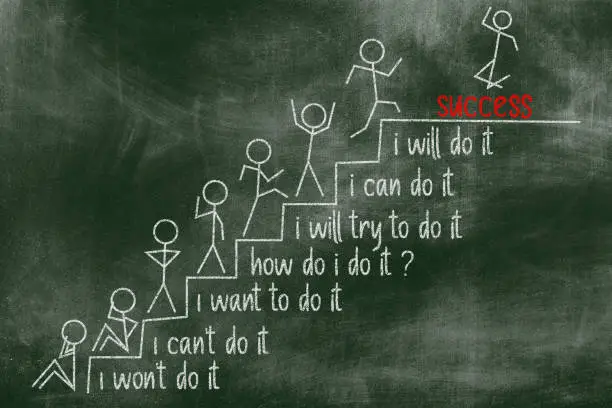What Are Leadership Skills?
Leadership skills are more than just telling people what to do. They include inspiring, guiding, influencing, and supporting others toward achieving a shared goal. Whether you’re managing a team at work, leading a volunteer group, or just trying to be a better parent or friend, these skills help you show up as someone people trust and follow.
Why Leadership Skills Matter in Everyday Life
Think leadership is only for CEOs and politicians? Think again! Leadership shows up in parenting, friendships, school projects, and even in online communities. Improving these skills isn’t just good for your resume—it’s good for your life.
Understanding Leadership
The Core Traits of a Good Leader
Great leaders aren’t born—they’re built. Some key traits include:
- Empathy: Truly understanding your team’s needs.
- Integrity: Doing the right thing, even when no one is watching.
- Vision: Knowing where you’re going and how to get others there.
- Resilience: Bouncing back when things don’t go your way.
Different Styles of Leadership
Ever heard of transformational, transactional, or servant leadership? Each has its vibe:
- Transformational Leaders motivate by vision.
- Transactional Leaders focus on structure and results.
- Servant Leaders put the needs of others first.
Choose the style that fits you—and tweak as you grow.
Assessing Your Current Leadership Skills
Self-Reflection Techniques
Before leveling up, you’ve got to know where you stand. Start by asking yourself:
- What leadership situations have I handled well?
- Where did I mess up?
- What would I do differently next time?
Write it down. Be honest. Growth starts with awareness.
Asking for Constructive Feedback
Don’t be shy—ask teammates, friends, or mentors how you come across as a leader. They might see blind spots you can’t. Try tools like Google Forms for anonymous feedback. It’s eye-opening and incredibly helpful.
Step-by-Step Guide to Becoming a Better Leader
Step 1 – Set Clear Leadership Goals
What does success look like for you as a leader? Be specific and realistic:
- “I want to lead a project at work next quarter.”
- “I want to improve how I handle conflict.”
Step 2 – Improve Communication Skills
Leaders talk—but more importantly, they listen. Practice:
- Active listening
- Giving clear directions
- Speaking confidently but kindly
Great leaders know communication is everything.
Step 3 – Learn to Delegate
Micromanaging kills morale. Learn to:
- Trust your team
- Assign tasks based on strengths
- Let go of control (just a little!)
You’re not doing less—you’re leading more.
Step 4 – Master Decision-Making
Good decisions build trust. Even if you mess up, owning it shows maturity and courage. Learn to:
- Gather facts quickly
- Weigh options
- Decide and take responsibility
Step 5 – Stay Emotionally Intelligent
Emotional Intelligence (EQ) helps you:
- Handle stress
- Understand team dynamics
- Avoid unnecessary drama
If IQ is your brain, EQ is your heart. And both matter.
Step 6 – Lead by Example
Your actions speak louder than your job title. Want your team to be punctual? Be on time. Want accountability? Own your mistakes. Simple.
Step 7 – Develop Conflict Resolution Skills
Disagreements happen. The key? Don’t avoid them—resolve them. Use:
- Mediation techniques
- “I” statements, not “you” attacks
- Active listening (again!)
Building a Growth Mindset
Embrace Failure and Learn From It
Failing doesn’t make you a bad leader—it makes you human. Fail forward:
- Analyze what went wrong
- Adjust your approach
- Try again
Commit to Lifelong Learning
Leaders who stop learning… stop leading. Keep growing through:
- Books
- Online courses
- Podcasts
- Coaching
Stay curious.
Practicing Leadership in Daily Life
Volunteer for Leadership Opportunities
Look for chances to lead, even outside of work:
- Church groups
- Community cleanups
- Online forums
Experience builds confidence.
Lead Projects at Work or in Your Community
Take initiative. Say, “I’ll organize that.” You’ll get:
- Real-life practice
- Feedback from others
- New opportunities
Leveraging Tools and Resources
Recommended Books and Podcasts
Some must-reads and must-listens:
- Leaders Eat Last by Simon Sinek
- Dare to Lead by Brené Brown
- Craig Groeschel Leadership Podcast
Leadership Courses and Certifications
Check out platforms like:
Certifications show you’re serious—and employers love that.
Surrounding Yourself With Other Leaders
The Power of Mentorship
A mentor can accelerate your growth big time. They’ll:
- Share their experiences
- Offer honest advice
- Keep you accountable
Find one. Be one.
Networking With Like-Minded People
Join groups, attend events, or connect on LinkedIn. Iron sharpens iron. The more leaders you know, the stronger you’ll become.
Tracking Your Leadership Progress
Keeping a Leadership Journal
Track:
- Wins and losses
- Lessons learned
- Feedback received
Reflect often. You’ll be amazed how far you’ve come.
Regular Check-Ins and Adjustments
Every few months, review your goals and adjust. Leadership isn’t static. You grow, your team grows—your strategy should too.
Leadership in the Digital Age
Leading Remote Teams Effectively
Virtual leadership is here to stay. Focus on:
- Clear communication
- Weekly check-ins
- Using tools like Zoom, Slack, and Asana
Using Digital Tools to Boost Collaboration
Try platforms like:
- Trello for project tracking
- Notion for documentation
- Google Workspace for collaboration
Tech makes leading easier—if you use it well.
Avoiding Common Pitfalls
Arrogance vs. Confidence
Confidence says, “I’ve got this.” Arrogance says, “Only I can do this.” Stay humble.
Micromanagement Dangers
When you hover, people shrink. Trust your team and watch them rise to the occasion.
Conclusion: Why Leadership is a Lifelong Journey
Improving your leadership skills isn’t a sprint—it’s a lifelong marathon. It starts with awareness, grows with effort, and blossoms through real-world experience. Whether you’re leading a Fortune 500 company or a small local team, the steps are the same: be honest, be intentional, and never stop learning.
FAQs
How long does it take to become a good leader?
It depends on your dedication. With consistent effort, you’ll see progress in weeks—but mastery takes years.
Can introverts be effective leaders?
Absolutely! Introverts often excel in listening, empathy, and thoughtful decision-making.
What are the best free resources for leadership development?
Try podcasts like The Ed Mylett Show, free YouTube TED Talks, and blogs like Michael Hyatt.
How do I measure leadership success?
Look at outcomes: team morale, project success, and feedback. Also, ask yourself—are you someone you’d want to follow?
Should I get a leadership coach?
If you can afford it—yes! A coach provides personalized feedback, accountability, and perspective.





